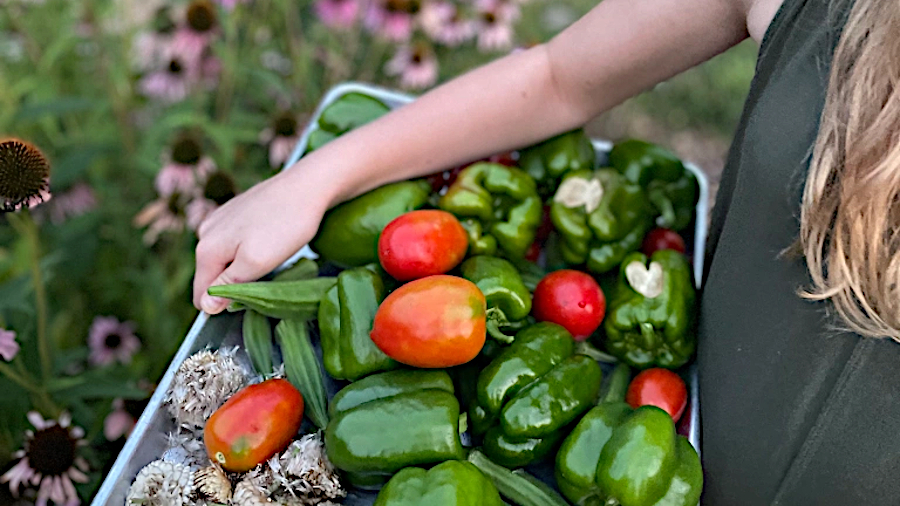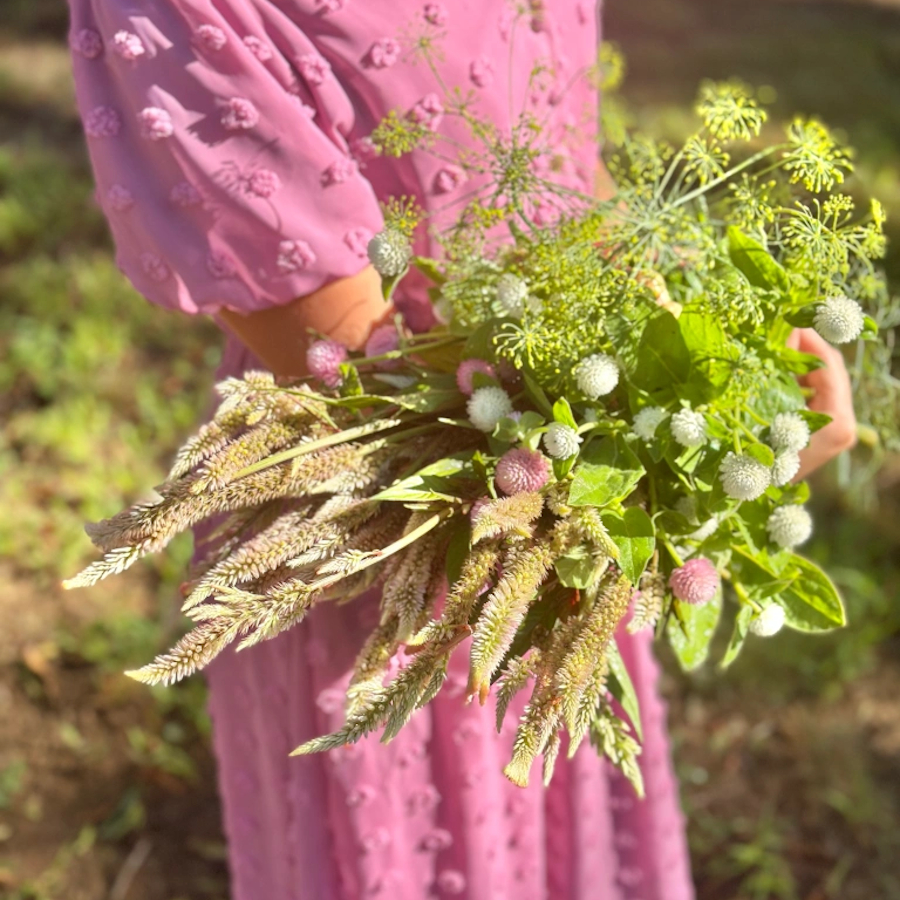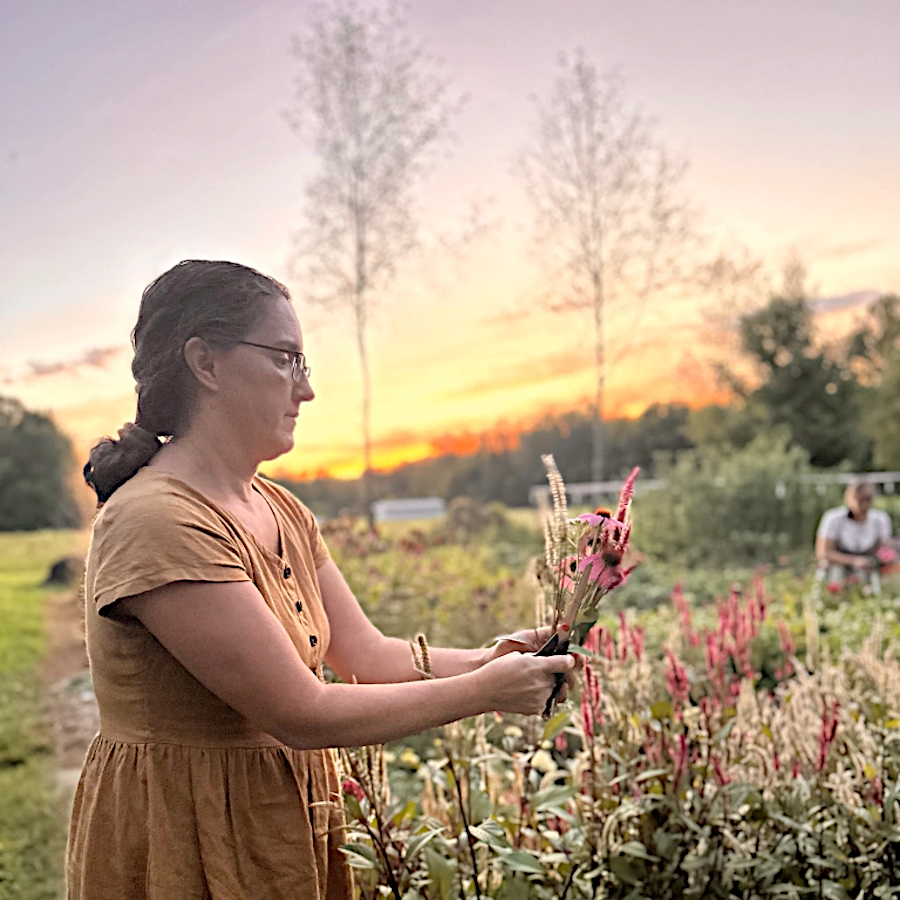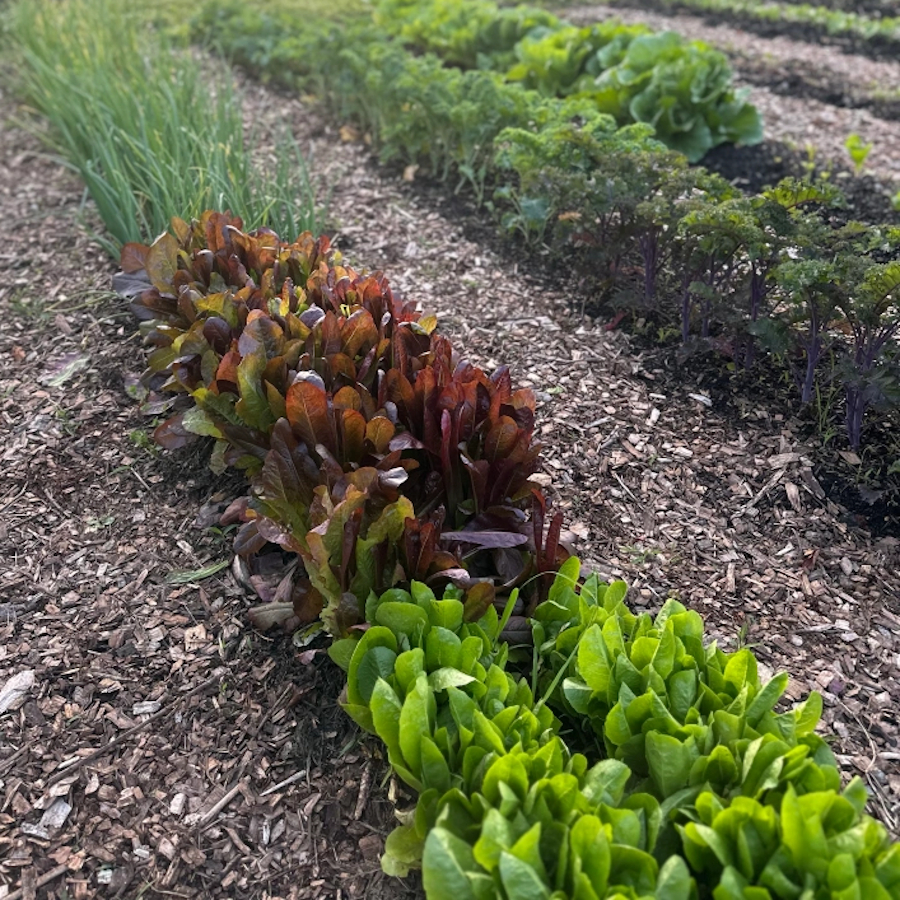I grew up a city kid, always a short commute from a major trauma center when my dad could quickly get to the operating room if his beeper went off. That telltale beeping always filled me with conflicting emotions - dread that he was leaving again and thrill at imagining the repairs his fingers would perform.
But even in our small urban backyard, he relaxed by tucking tomato and marigold plants into the flowerbeds. Perhaps he was happiest getting dirt under his fingernails, too.
My most vibrant gardening memories, though, were in the plot right beside my grandfather's red barn. The garden was his humble playground, his big hands dwarfing the tiny plants as he'd carefully tuck them into the brown-hilled rows. He'd uncoil the hose and turn the water on, the water that was pumped up from the brown lazy creek that laced below the mesquite trees.
I'd crouch in the blistering heat and watch the curling stream of water push and swirl its way down the dry channels between the rows. I'll never forget the sound of the parched ground sizzling and almost gasping when the water hit its parched surface.
Grandfather didn't really have to garden; he could just as easily have grabbed tomatoes at the grocery store where he bought his Dr. Pepper and Mrs. Baird's white bread. But he couldn't help himself. It was good to work, good to do things with your hands. And what would a farm be without a garden, anyways?

I married into a family that gardens on another level. Whatever garden plot my mother-in-law touches, it turns into Eden. My father-in-law brings loads of manure, and my mother-in-law plants, hoes, tends, and harvests with uncomplaining dedication.
I've gardened in dry Texas heat and in northern Indiana, where I shoveled and hoed a corner of the lawn into a well-loved little garden patch. I gardened in North Carolina - our first little home after Daniel and I married, in the tiny orchard surrounded by fields of black angus cattle. And now, I garden in our clay patch, where I've struggled and conquered, learned about compost and mulch, and grown far more flowers than I ever imagined. I've gathered countless bouquets to give away, delighting not only in the beauty they hold, but in the lessons I learned as I grew them.

I trimmed back flowers hard last week and pulled up tired green bean plants… Trees are suddenly hinting of fall, and even though I'm not quite done with summer. The changing seasons are luring, calling me to run and catch that first curling and turning of the leaves.
I'm not just talking about gardening.
You knew that already.
Gardens are only the pictures that sprawl brilliantly across the summer pages of our lives. We learn through hands-on lessons - through real-deal mistakes and hard-earned successes.
We each leave a legacy. We pursue character and growth, we reach for new skills, and we fail often. We struggle with limited resources, with hard clay soil, with relentless crabgrass.
But we grow by not giving up.
Struggle develops deep brawn in our souls. We learn to chase joy most clearly when sweat blurs our vision. And someday, by a million miracles, we find our hands full and overflowing with fresh glistening fruit, still warm from the sun's kiss.

My garden is holy ground, for I've met God there. Gardens have been part of my life, at first resented, then tolerated, and now embraced.
Each year as I garden, I know a little bit more. I remember what worked last year, which flowers were my favorites to tuck into gifted bouquets. I learn about growing, both in the soil and in my soul.
I have a feeling there are gardens in heaven, long, wide rows of nodding lavender and climbing star jasmine, filling the air with richness. (But maybe heaven will be without the blistering heat. Or mosquitoes. And certainly no crabgrass, or "hell grass," as we sometimes mutter under our breath. I wouldn't argue that.)
Maybe things will just grow unaided there, no tending or pruning. But then, somehow, I can't imagine that God, who created first the perfect garden of Eden, won't Himself be tending and delighting over budding fruit and bursting flowers. Surely in heaven, we won't be able to help ourselves, gathering and harvesting as we did on earth, right alongside Him.
Just maybe that's part of the mystery; we were made to grow in the garden alongside the fruit and flowers that vex and thrill our souls. We find that thistles and thorns teach us about sin and our dire need for pruning. Fruitful growth is a lavish demonstration of having uncurled our roots and thrust them deep into real living water.
It is the glory of God to unveil His mysterious ways to us, one day, one garden at a time.








Comments
Have thoughts on this article? Leave a comment